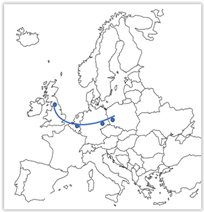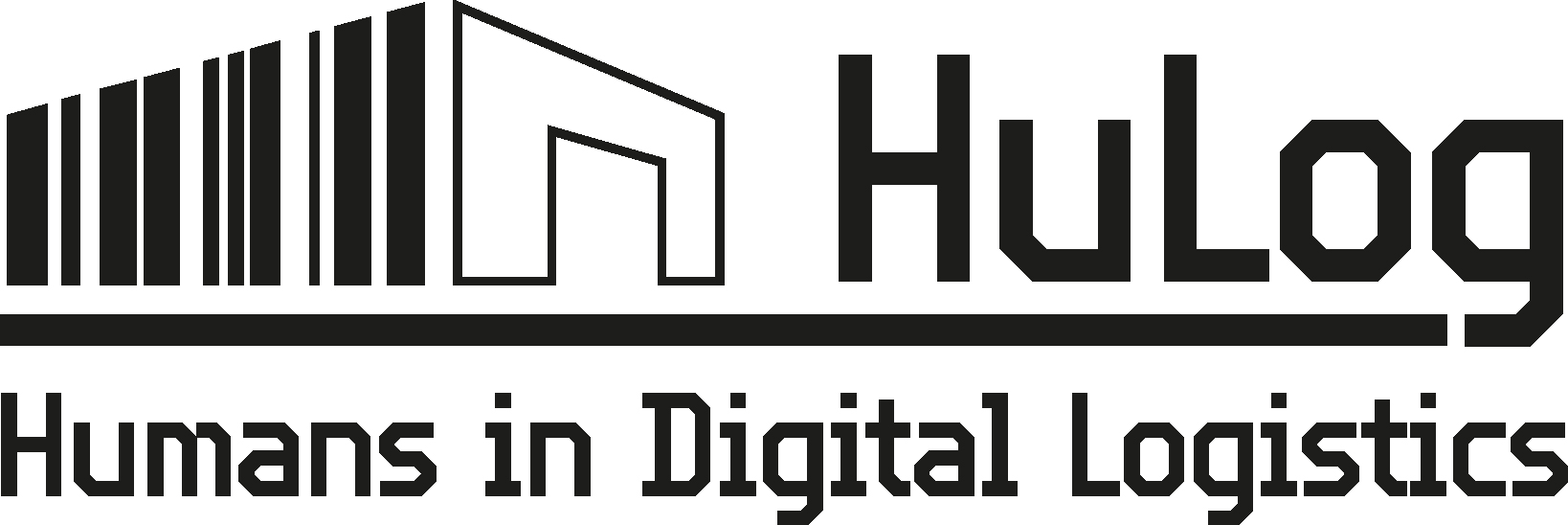HuLog
Humans in Digital Logistics (HuLog) investigates how digital technologies shape work and employment conditions in warehouses in Europe. HuLog will produce multidisciplinary, cutting-edge scientific knowledge on work and employment in European logistics. The project will advance the scientific literature in and across relevant disciplines and inform the public debate on the future of work in a context of rapid technological transformation.


News
Stay Updated!
Want to keep in the loop? Stay updated and follow HuLog's progress.
Research context
Today, warehouses are profoundly affected by rapidly evolving digital technologies along the whole supply chain, which facilitate online purchase of goods, harmonize systems for tracking parcels, and optimize warehouse operations to reduce the time for handling goods. Warehousing is expected to keep growing and to generate new jobs, as companies increase local inventories to mitigate the risk of global supply chain disruptions caused by international trade conflicts (e.g. Brexit), armed conflicts and calamities such as the COVID-19 pandemic.
Still, the impact of digital technologies on work and employment in warehouses remains poorly understood. Most studies of warehousing focus on IT-induced efficiency gains reducing the time and cost of processing goods, yet neglect the experience of workers. HuLog takes a more human-centred look at the digitally-driven transformation of warehousing and logistics work.
An essential condition for building a more efficient and resilient European logistics is the improvement of the poor work and employment conditions today prevalent in this sector, across jobs such as warehouse operators, truckers, maritime operators and couriers.
The technologies that ensure an as-smooth-as-possible integration of workers into logistics processes, from online purchase to goods delivery, fundamentally shape work and employment in ways that are too often harmful to workers. For instance, sophisticated algorithmic warehouse management systems optimize warehousing operations in ways that intensify work leading to high injury rates and high turnover rates of workers (of up to over 100%), causing structural labour shortages.
These digital technologies further enable employers to pervasively surveil workers and dynamically benchmark their productivity against the their peers. They typically come with precarious employment terms (e.g. temporary agency work, posted work) that allow not only for maximal flexibility of the workforce to address peaks in the flow of goods, but also to continuously select them, making union activity and mobilization particularly difficult. Given the harsh work and employment conditions, the logistics workforce is disproportionately composed of racialized workers and workers with a migration background and/or other subordinated social groups in society, who are often unable to obtain better conditions precisely because of their weaker position in the labour market.
HuLog investigates the key role of digital technologies in shaping work and employment conditions in warehouses across Europe in view of making them more human-centred and socially sustainable.
Objectives
|
Objective 1: To gain an in-depth understanding of how digital warehouse management systems shape workers’ lived experience of the warehouse work. |
|
Objective 2: To document and theorize the role of warehouse management systems in co-shaping companies’ human resource management strategies affecting work and employment conditions. |
|
Objective 3: To derive an analytical framework comprising guiding principles for envisioning policy fostering human-centred and socially sustainable digital warehousing. |
Approach
HuLog will produce multidisciplinary, cutting-edge scientific knowledge on work and employment in European logistics. It will advance the scientific literature in and across relevant disciplines and inform the public debate on the future of work in a context of rapid technological transformation. Combining a socio-material with an employment relations perspective, HuLog examines how digital technologies are deployed in the organization of warehouse operations, including how they:
- shape warehouse workers’ experience of work
- drive warehousing companies’ employment strategies to maximize workforce flexibility, and how this affects working conditions.
HuLog relies on a multiple-case research design including 12 in-depth cases of European warehouses, 2 in each of 4 logistic hubs, and 12 focus groups with key institutional actors (3 in each hub). Located along the east-west logistics axis running from Western Poland to Berlin-Leipzig-Halle (Germany), Limburg (Belgium), and West Yorkshire (United Kingdom), these hubs host important concentrations of warehousing.
Interview data will be complemented by warehouse documentation and non-participant observation of warehousing. We will also organize several focus groups with key institutional actors in the 4 hubs.

The HuLog consortium consists of Hasselt University, Kozminski University, University of Leeds, and the Hertie School.
Stay updated!
Want to keep in the loop? Stay updated and follow HuLog's progress.

The Humans in Digital Logistics (HuLog) project, an international research consortium of Hasselt University (Belgium, lead partner), Leeds University (UK), Kozminski University (Poland) and the Hertie School (Germany), officially launched on November 1st, 2022. Project HuLog is supported by FWO Belgium, NSO Poland, UKRI United Kingdom, and the Bundesministerium für Bildung und Forschung Germany under CHANSE ERA-NET Co-fund programme, which has received funding from the European Union’s Horizon 2020 Research and Innovation Programme, under Grant Agreement no 101004509.











